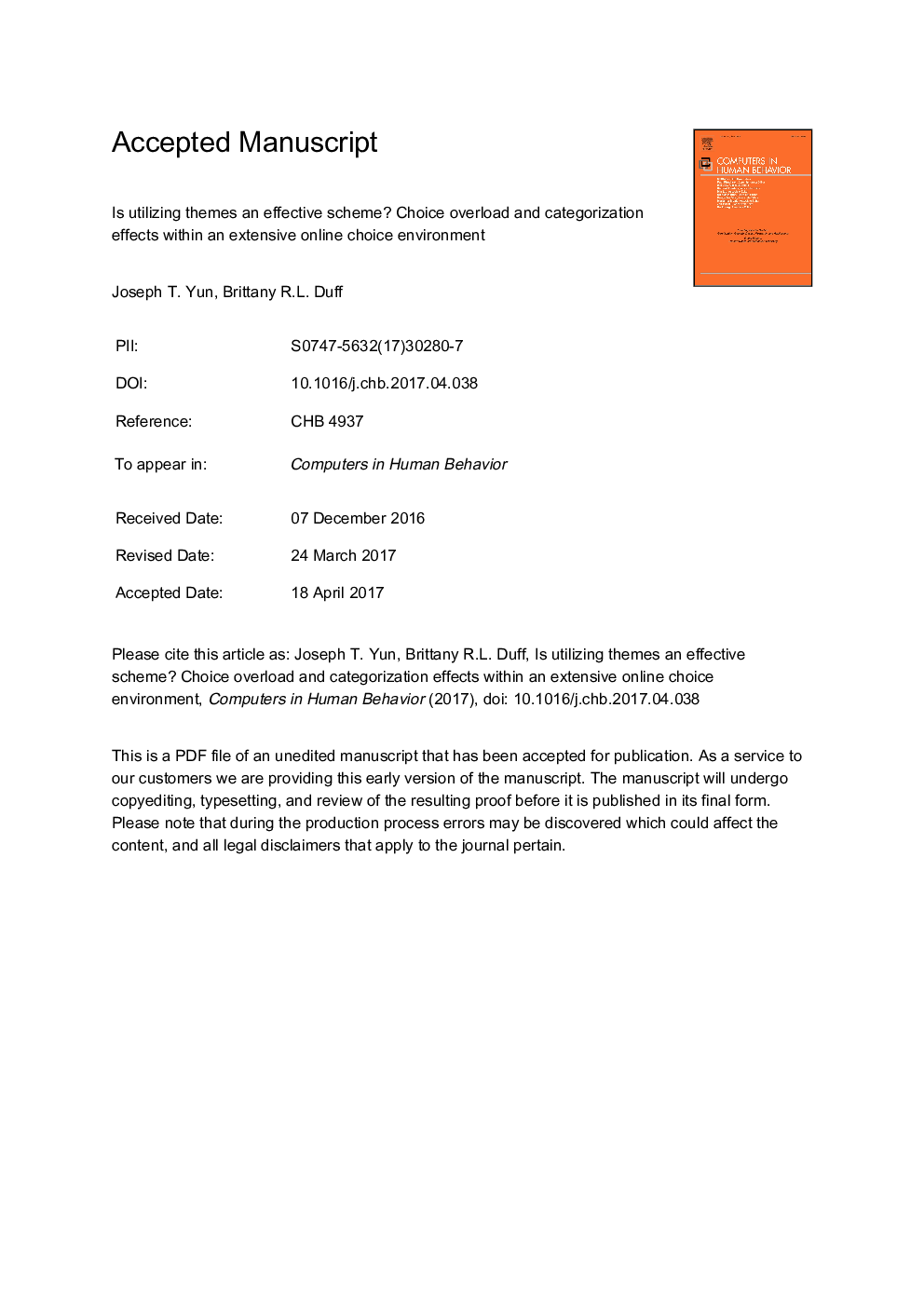| Article ID | Journal | Published Year | Pages | File Type |
|---|---|---|---|---|
| 4937249 | Computers in Human Behavior | 2017 | 39 Pages |
Abstract
Computer websites are often environments where users are presented with many choices, potentially leading to “choice overload”. Studies have shown that when the number of choices cannot be reduced, categorization reduces choice overload, but the results are mixed as to whether different types of categorization affect how users experience choice overload. University course catalogs are online environments where there are a large number of potential options to choose from but class choices cannot be removed to create a smaller overall set. However, categorizing the large set of options may help ameliorate the effects of overload. We tested taxonomic (e.g. Computer Science) against thematic categorization (e.g. Choosing a Career) and found that categorization had two effects: taxonomic (vs. thematic) categorizing decreased choice overload, but taxonomic categorization also led to individuals browsing on the site for a shorter duration. This effect was particularly pronounced for those who were familiar with the choice environment. We discuss implications for these findings, as website owners may decide to utilize thematic categories to extend browsing time, but this may be at the cost of making the choice experience more difficult.
Related Topics
Physical Sciences and Engineering
Computer Science
Computer Science Applications
Authors
Joseph T. Yun, Brittany R.L. Duff,
